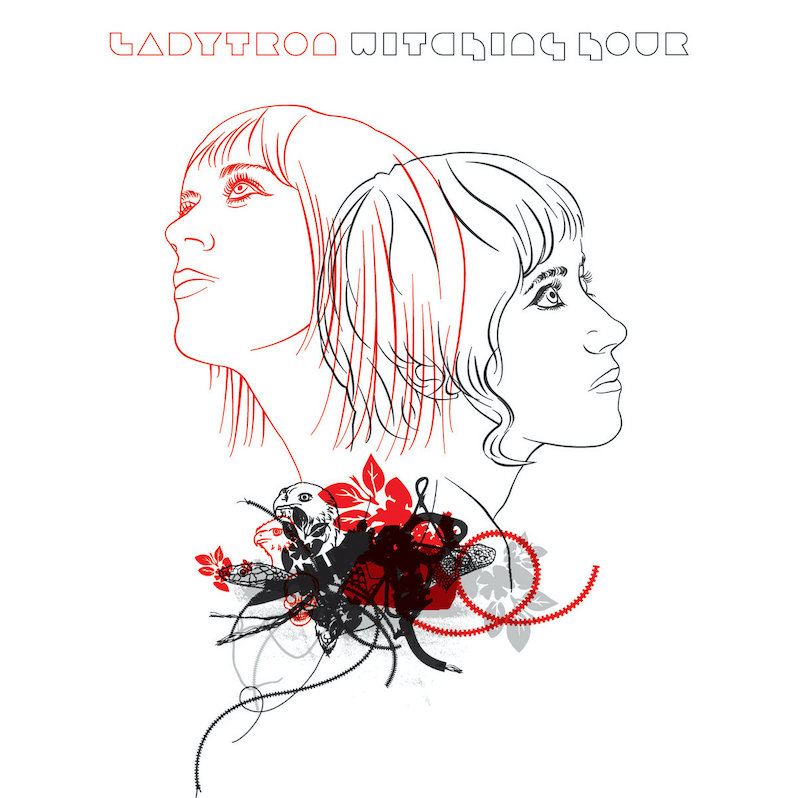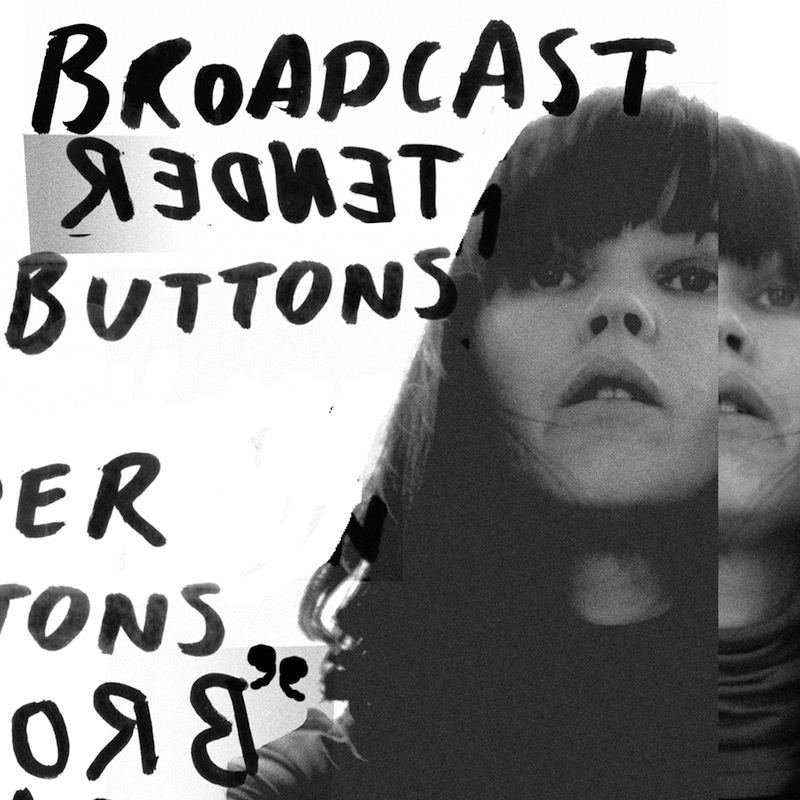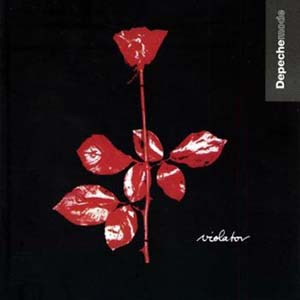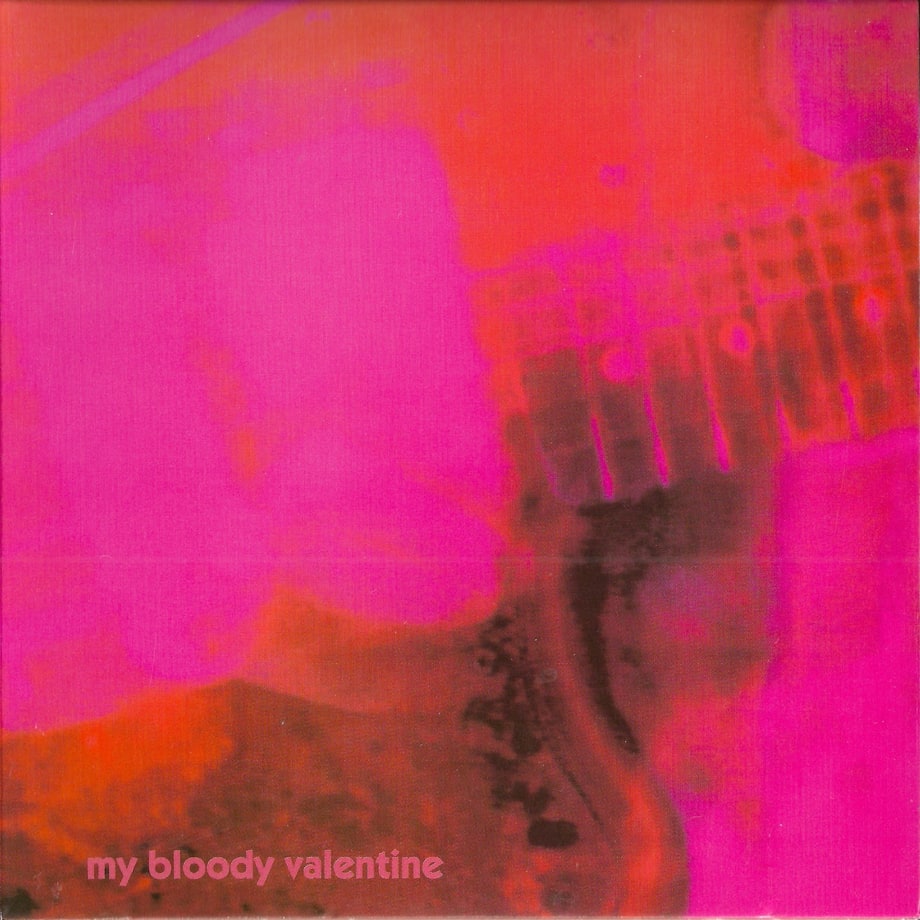Ladytron : Witching Hour

Ladytron‘s affinity for hooks has never been in doubt, but over the course of three albums, they’ve built their sound out from their new wave and electronic influences and expanded them into a sound that was unmistakably theirs. Though the kitschy imagery and influence of artists like Kraftwerk, and a name nodding to Roxy Music, helped to define them, they shed some of that overtly machine-centric aesthetic on album number three. Digging deeper into dark textures and chillier sounds, Witching Hour finds Ladytron sounding more human, at the expense of a little sunshine.
On the surface, the approach is mostly in line with their previous two albums, 2001’s 604 and 2002’s Light and Magic, it’s mostly a matter of mood and intensity. The songs are still heavily washed in synthesizers. The melodies are still as catchy as they’ve ever been. But the songs this time around sound fuller, louder and at times even more ominous. Helen Marnie’s vocals phase in and out between passionate and detached, stoic and paranoid. But the addition of more guitars, throbbing bass and the occasional live drums actually make them sound like more of a menacing, pulsating organism—or a rock band.
Never has the band sounded as fierce as they do on “High Rise,” a song that finds Marnie spouting apocalyptic images in what is, essentially, a love song:
We are on the same high, you and I
Open on the same page, no sunrise
First single “Destroy Everything You Touch” takes the best elements of the band, polishes them and compacts them into a denser, dare I say it, perfect form. It has the immediacy and power of a song like Depeche Mode’s “Enjoy the Silence.” Only it takes on the role of a heavier, pounding industrial-dance pop song, with a destructive onslaught of electronics.
Witching Hour doesn’t consistently pummel, however, and that’s a good thing. Those first two songs are intense, and the melancholy “International Dateline,” while still melodic and immediate, is likewise more open, opting for grace and beauty over impact. Marnie’s voice reaches new heights during the chorus, cooing “let’s end it here” in heartfelt desperation. And “Sugar” meanwhile ups the tempo and volume once again, its noisy guitars and pounding rhythm owing more to Curve than Kraftwerk.
Marnie’s counterpart, Mira Aroyo, has a less prominent vocal presence on Witching Hour, but when she is handed the mic, she makes it count. Her spoken word delivery on “Fighting in Built Up Areas” is downright terrifying, bringing to mind some of Wire’s weirder tracks from 154. And her detached vocals guide the dark indie pop of “AMTV” wonderfully. Nonetheless, Marnie’s lead is a strong and flawless one, driving gems like “Last One Standing” and “Beauty*2” gracefully and powerfully.
With Witching Hour, Ladytron have grown as much in their expanse of sound as they have in terms of their songwriting, catalyzing their creative energy into a diverse, yet cohesive collection of songs that is easily their best.
Label: Rykodisc
Year: 2005
Similar Albums:
Jeff Terich is the founder and editor of Treble. He's been writing about music for 20 years and has been published at American Songwriter, Bandcamp Daily, Reverb, Spin, Stereogum, uDiscoverMusic, VinylMePlease and some others that he's forgetting right now. He's still not tired of it.




